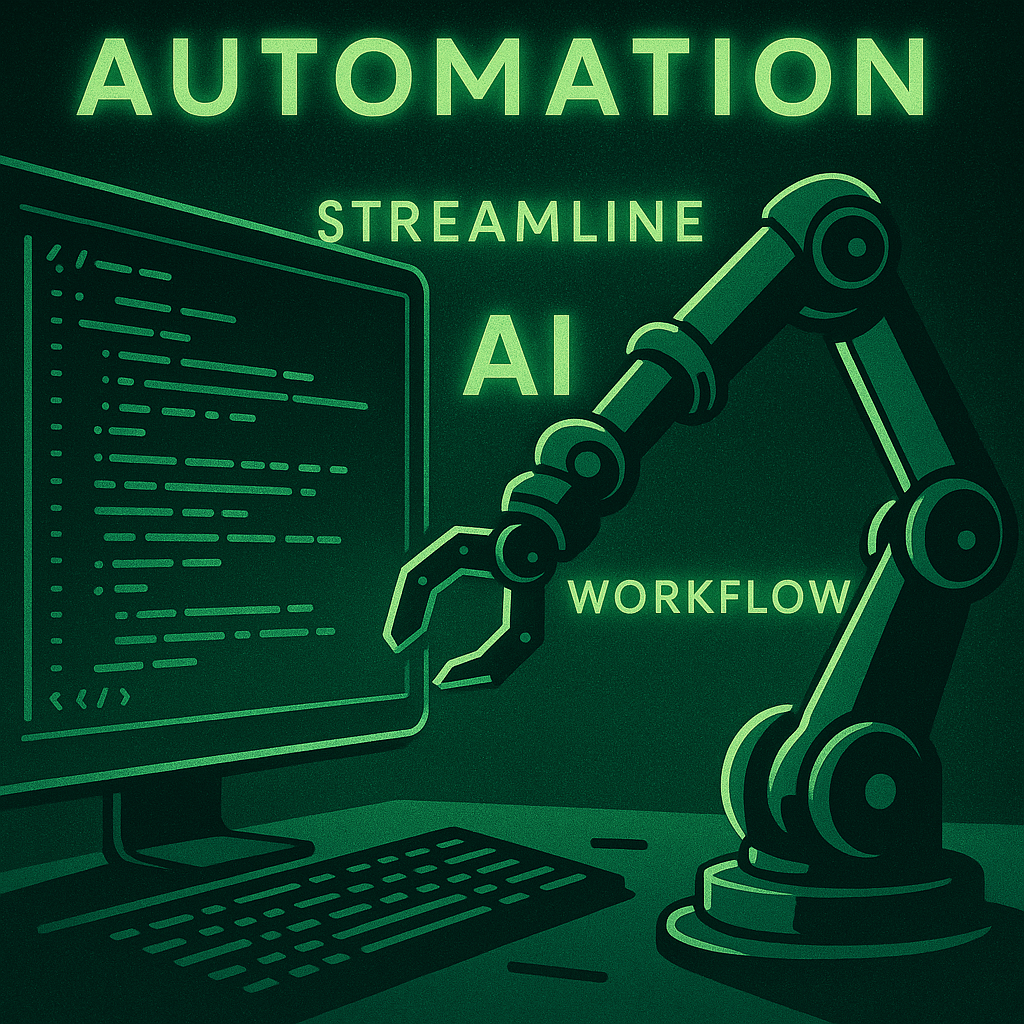Automating Repetitive Tasks: Leveraging AI for Enhanced Developer Productivity

Hello, Fine Coders!
In the pursuit of Fine Coding, efficiency and focus are paramount. Yet, a significant portion of a developer's day can be consumed by tasks that are, frankly, repetitive and often mundane. From setting up boilerplate code to generating basic tests, these activities, while necessary, steal precious time and mental energy that could be better spent on complex problem-solving, architectural design, or innovative feature development.
Enter Artificial Intelligence. For the discerning Fine Coder, AI isn't just about cutting-edge algorithms; it's a powerful ally in automating the repetitive, freeing up cognitive resources, and ultimately amplifying developer productivity. Let's explore how AI can transform your workflow.
🛑 The Productivity Drain: Why Repetitive Tasks Matter
Repetitive tasks, no matter how small, accumulate into significant time sinks. They also contribute to:
- 🧠 Cognitive Fatigue: Monotony drains mental energy, reducing your capacity for creative problem-solving.
- ⚠️ Error Introduction: Manual repetition increases the likelihood of human errors.
- 🔄 Reduced Flow State: Breaking concentration for trivial tasks disrupts "flow," hindering deep work.
- 🐢 Slower Development Cycles: More time on setup means less time on core features.
A Fine Coder understands that eliminating these drains is a direct investment in higher-value work.
🤖 AI as Your Automation Co-pilot: Practical Applications
LLMs and other AI tools can seamlessly integrate into your workflow to automate a variety of common, repetitive development tasks:
1️⃣ Boilerplate Code Generation
- Initial Project Setup: Instead of manually creating file structures, basic configurations, or common components for new projects, prompt an AI to generate them. E.g., "Create a basic Next.js 14 project structure with TypeScript, Tailwind CSS, and a Redux Toolkit setup."
- Component & Module Stubs: For frameworks like React, Vue, or Angular, AI can quickly generate functional component stubs with necessary imports, state management boilerplate, and props definitions.
- API Client/Server Stubs: Provide your API definitions (e.g., OpenAPI spec), and AI can generate basic client-side request functions or server-side endpoint handlers.
2️⃣ Basic Test Case Generation
- Unit Test Scaffolding: For a given function, AI can suggest and generate basic unit test cases, including happy paths, edge cases, and error handling tests. E.g., "Generate Jest unit tests for this JavaScript function that sums two numbers, including tests for non-numeric inputs."
- Mock Data Generation: Create realistic mock data for testing components or APIs.
3️⃣ Standard Code Refactoring
- Syntax Modernization: Update older syntax to newer language features (e.g., converting
vartolet/const, callback hell toasync/await). - Readability Improvements: Suggest minor refactorings for clarity, like extracting magic numbers into constants or breaking down long methods.
- Style Guide Adherence: Automatically reformat code to adhere to your team's specific style guide (though dedicated formatters like Prettier are often more robust for this).
4️⃣ Data Transformation and Scripting
- Quick Scripts: Generate small scripts for one-off data migrations, file processing, or system tasks. E.g., "Write a Python script to parse a CSV file, extract emails, and save them to a new JSON file."
- Regex Generation: Need a complex regex? Describe your pattern, and AI can generate it, saving you trial-and-error time.
5️⃣ Documentation Assistance (as seen in Blog Post 12)
- While this deserves its own detailed exploration, using AI to generate docstrings, READMEs, and API documentation is a prime example of automating a historically repetitive and avoided task.
🚀 Benefits for the Fine Coder
- ⚡ Hyper-Productivity: Finish tasks in minutes that used to take hours.
- 🧘 Reduced Cognitive Load: Free your mind from routine details to focus on complex logic and creative solutions.
- 🔄 Increased Consistency: AI-generated boilerplate ensures uniformity across your codebase.
- ✅ Fewer Errors: Automation minimizes human typos and oversight in repetitive tasks.
- 📚 Accelerated Learning: See best practices immediately applied in generated code.
🔧 Integrating AI Automation into Your Workflow
- Identify Pain Points: Which tasks do you dread or find most repetitive? Start there.
- Choose the Right Tools: Tools like GitHub Copilot are integrated into your IDE. Standalone LLMs like ChatGPT or Gemini can be used for more ad-hoc scripting and boilerplate.
- Prompt Engineering: As discussed previously, mastering the art of clear and specific prompts is crucial for effective automation.
- Verification: Always review and test AI-generated code. It’s a starting point, not a final solution.
- Iterate: Your automation workflow will evolve. Continuously refine your prompts and explore new ways AI can assist.
By intelligently deploying AI to handle the monotonous, Fine Coders can transform their daily routine from a grind into a stream of focused, high-impact contributions. This isn't just about working faster; it's about working smarter, allowing you to dedicate your unique human creativity to the most challenging and rewarding aspects of software development.
Next up: How does AI impact the critical process of ensuring code quality? We’ll explore "Code Review in the Age of AI: How to Use AI to Improve Code Quality"!
